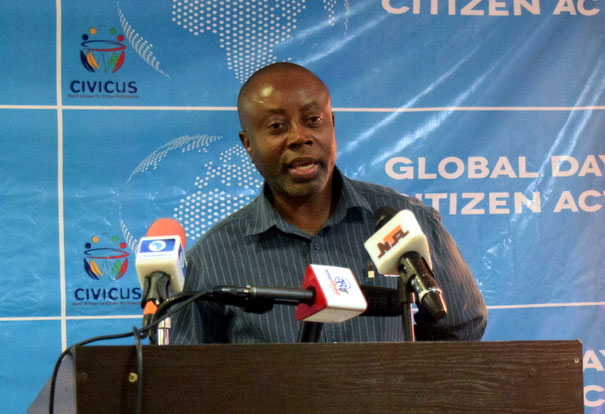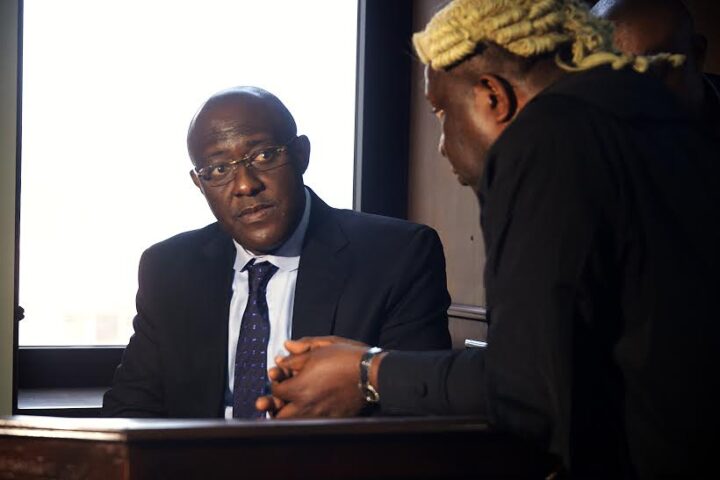BY GODWIN ADINDU
Of course, you are aware of the common phrase: nobody is perfect. Forget about the Pope’s claim of infallibility. It is common sense that nobody is perfect. Criminologists and men of the Intelligence Bureau stand on this premise to theorize that since there is no perfect man, there cannot be a perfect crime. This is the take-off point of all criminal investigations. Because crime is usually executed in a hurry, it often reflects the imperfection of man, leaving behind traces of error, mistakes, loopholes and untidiness. This is the fate of Uche Ogah in the errors in his flaunted INEC Certificate of Return.
There is no perfect crime and because all the dramatis personae in the black Thursday’s Abia failed coup d’tat, are human beings, they could not perfect the plot without traces of error. So do not be surprised that men of the Independent National Electoral Commission (INEC) forgot that the elections that produced the governor of Abia State were conducted on April 11 and 25 of 2015. The elections of April 11 were declared inconclusive and a re-run held on April 25. The two elections combined to produce Governor Okezie Ikpeazu. But, in writing the controversial INEC certificate for Uche Ogah, Lawrence Nwurukwu, INEC Commissioner representing South East, could only remember the election of April 11. Human error number 1.
There is no perfect crime. Thus, in the hurry to execute the well-rehearsed coup, a judgement that was entered on the 27th of June by 4pm had its enrolment order released on the 28th when it should have been released after five days by the advertisement of the judge. Then INEC despite having received the Notice of Appeal and Notice of Stay of Execution, still hastily issued the maggot-infested certificate of return to Ugah. They were in a hurry to fulfill their own part of the bargain, having been provided with the legal landing ground in the caveat of Justice Okon Abang: with immediate effect. Human error number 2.
Advertisement
There is no perfect crime. So in the hurry, the Abuja High Court failed to summon the Abia State Board of Internal Revenue (BIR), the issuing body of the controversial tax papers , who should have been a respondent in the case. In the planning and execution of a coup, logistics is a critical factor. But, Ogah and his cohorts could not anticipate a possible delay in the flight schedule. Yet, the American Naval Seals who invaded Abbottabad, Pakistan in May, 2011 to capture Osama Bin Laden had the foresight that any of their black hawk helicopters could develop a fault. So they stationed one on standby. When the first helicopter suddenly developed a fault and could not land on the roof as was rehearsed, the pilot quietly landed it on the ground and immediately called for a reinforcement before proceeding with the mission.
But, in the case of the failed Abia coup, the planners were fast to move soldiers and mobile policemen secretly into Aba and Umuahia few days to the black Thursday to forestall possible reactions from the masses, but they failed to tidy the aspect of the movement from Abuja. Human error. They could not also factor the possible challenges that might arise from the Abia judiciary. They left a lacuna that the Osisioma High Court exploited to give the fatal injunction that grounded the plot. They did not also conduct their feasibility to ascertain that the State Director of the SSS and other top security chiefs in the state could not be a willing tool to a sham that was going to precipitate an unprecedented bloodbath in the state.
The Ogah think-tanks obviously omitted the tide in their proceedings of the coup. And, when a coup fails in a matter of hours, all the “voyage is bound in shallows and misery”. But, more importantly, the Abia black Thursday will go down in our lore as the greatest assault on our democracy since the birth of the Fourth Republic in 1999 in Nigeria. In Abia, it will remain as a crucial political history, coming after the great liberation that conquered a family dynasty. Our children will hear and read about the black Thursday and shudder about one man’s flip-side ambition and the desperation for power. The story will be told as a legend, in folklore and dance. It will be an epic, capturing a dispensation in the people’s movement, lauding their victories and lamenting their absurdities.
Advertisement
The story must record that in the drama of the black Thursday what was afoot was an inordinate ambition that ignored the grave implications to law and order and the concomitant anarchy and bloodshed. The coupists wanted to hold back the hand of the clock. They wanted to cut short a youthful energy that found expression in 65 road construction works in one year. They wanted to cast a spell over a new dawn of hope characterized by the dynamism which Governor Ikpeazu represents in governance and which is vindicated by an excellent scorecard of one year stride. Nigeria would have helplessly watched as Ogah traversed the dangerous landmine of disorder with reckless courage and drag an otherwise peaceful state into an avoidable bloodbath.
History will also honour those who played critical roles in saving the state from a dangerous drift into the cesspit of war. The story will decry the ugly side of ambition and note that what Ogah needed was patience in the actualization of his dream. By attempting to distort the Abia Charter of Equity upon which framework, the PDP zoned the governorship slot to Abia South, he hurt a great and large segment of the Abia populace, the UkwaNgwas and transgressed against the party. And because justice is of God, he also transgressed against God and contravened the cosmic laws of cause and effect. He ruined a very formidable political prospect and a great reputation.
But, the greatest of the lessons in the Abia black Thursday is the affirmation of the aphorism of the imperfection of man which lends credence to the theory of the imperfection of crime.
Adindu is president-general of the Abia Renaissance Movement
Advertisement
Views expressed by contributors are strictly personal and not of TheCable.






